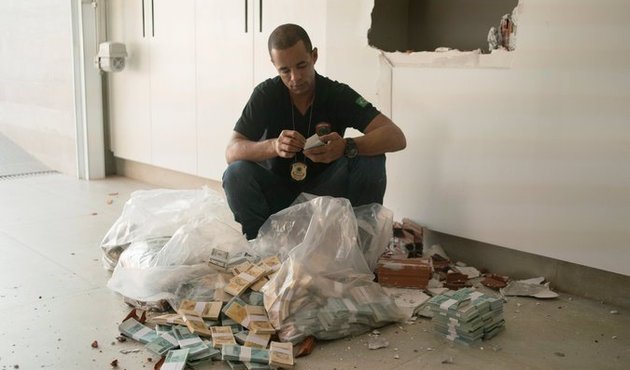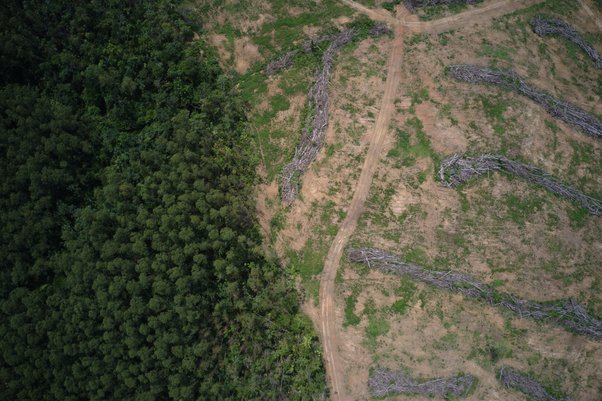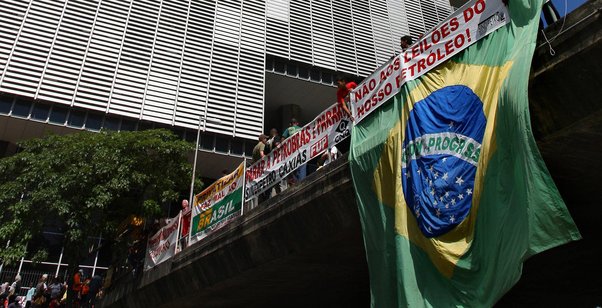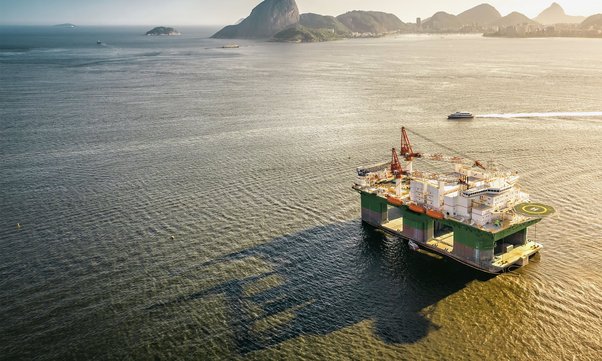As a new Netflix series dramatises one of the world’s largest corruption cases, Global Witness puts a figure on the cost of the scandal
In the 1980s, Alberto Youssef was, alongside an older sister, smuggling whisky and electronic products from Paraguay to Brazil.
Once, while being chased at a high-speed by police, VCRs kept falling out of the pick-up truck he was driving.
Few would have guessed that this almost comical character would, one day, become a key player in what has been called the biggest corruption scandal in history.
But then, the Car Wash, or as it’s known in Portuguese, Lava Jato, stretched far and wide across Brazil at a huge cost.
New research by Global Witness shows the damage caused by the Car Wash scandal far exceeds the sums stolen.
The cost to the Brazilian treasury may be nearly eight times higher than the £1.4bn actually taken, enough to cover the salaries of more than a million nurses or provide a year’s education for over 17 million children.
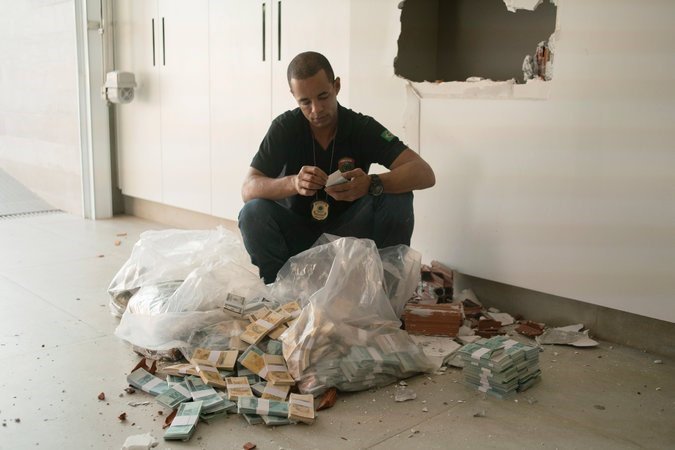
Police only began to uncover the extent of the Car Wash scandal in 2013, when they became suspicious about the sheer quantity of cash churning through a bureau de change in a humble petrol station in the country's capital Brasilia.
That led to the arrest of Youssef, which in turn led to further arrests. It soon became clear that this was no ordinary money laundering operation.
Police had stumbled upon a racket that would involve at least 28 major corporations and 20 political parties, resulting in over 100 convictions. The list of those implicated reads like a Who’s Who of the Brazilian political elite, including two of the country's presidents.
Former Brazilian president Luiz Inacio Lula da Silva has been sentenced to more than 12 years, after it emerged he took bribes for helping a construction company win contracts with Petrobras.
Lula says the case is politically motivated and remains free while appealing it.
A ruling in a federal court on Monday, however, could send him behind bars, even as he takes the case to the Supreme Court.
Current president Michel Temer has also been at the centre of corruption investigations, most recently over allegations of bribery concerning a deal for operating services at the Port of Santos, Latin America’s largest container port.
Congress has twice blocked Temer from standing trial on corruption charges while in office, and he denies the allegations.
The scandal has also inspired The Mechanism, a new Netflix drama from the director behind the biopic of Pablo Escobar, Narcos.
The sums of money involved in Car Wash were almost at Escobar levels, but the billions lost to Brazil’s hard-pressed public services mean the scam might also have caused harm on a scale comparable to the druglord’s activities.
A Byzantine racket: How Car Wash worked
The fraud revolved around Petrobras, Brazil’s state-owned oil company. Instead of awarding huge contracts for construction projects, oil rigs, shipping and so on in the normal manner, the work was rotated around a cartel of companies in orderly fashion.
Petrobras would over-pay the companies by at least 3%, with the extra money forming a kickback to the directors responsible for awarding them the contracts.
These directors would pocket some of the money, and hand the rest to the politicians who had appointed them to their lucrative posts.
The money then went to the campaigns of Brazil’s political parties and provided backdoor funds that kept otherwise unstable governing coalitions together.
The result was a Byzantine racket of astonishing intricacy and scale in which everyone took a cut.
Bribes came in the form of bricks of cash, expensive art works, aircraft and yachts; anonymously-owned companies in tax havens and foreign bank accounts helped launder the loot.
One Petrobras director alone channelled €20m to banks in Monaco from accounts in the Bahamas, Panama and elsewhere.
“Once the mechanism is established, only the corrupt can take part,” says José Padilha, the Brazilian writer and director of The Mechanism.
“If you’re an honest politician you’re doomed. The honest businessman will not get any contracts. There are only crooks.”
This “mechanism” had been running uninterrupted for at least 12 years.
The biggest corruption scandal in history?
Was this really the biggest corruption scandal of all time? Virtually every Car Wash explainer in the UK press poses the question – but none provides an answer.
That’s probably because it’s notoriously hard to quantify value throughout history.
In 193 AD, the Roman Praetorian Guard assassinated their emperor and held a fraudulent auction to appoint his successor, striking a deal worth 250 pieces of gold for each soldier in the army. (The empire was not theirs to sell).
If not the earliest documented fraud, it was surely the most audacious – but trying to convert the ransom into modern currency is a fool’s errand.
But Padhila has no doubt. “It’s the biggest corruption scandal in the history of mankind,” he says.
“It involves a mechanism which has been operating in Brazil in one form or another since at least the Eighties. Too many Brazilians fall into the trap of ideology, but the mechanism has no ideology. It is left wing and right wing. The whole political system is corrupted. Democracy has failed.”
Regardless of whether Car Wash is the biggest bribery case of all time, it certainly features in the ranks of the world’s corruption mega-scandals, sitting alongside mammoth state-thieving operations such as Malaysia’s recent “1MDB scandal” – US lawsuits claim an estimated $4.5bn has gone missing from a state development fund – and France’s Elf scandal, which shook the body politic and in which at l east $400m was creamed off international oil contracts.
All these scandals were linked to illicit political funding.
How much did Car Wash really cost Brazil?
Theft and losses from Petrobras hit the public purse
Taking a look at the cost of Car Wash to Brazil, first off there is the amount filched from the state oil company in improper payments.
A Federal Police report seen by Global Witness conservatively estimates this at £1.4bn – all of which had to be laundered, sometimes moved physically.
To put this logistical feat in context, if withdrawn in £10 notes the sum would make a stack eight miles high – equivalent to almost 16 Burj Khalifas, the tallest building in the world (or, if you like, 343 Christ the Redeemers).
The 119 tonnes of cash would take a fleet of 97 Ford Transit vans to deliver.
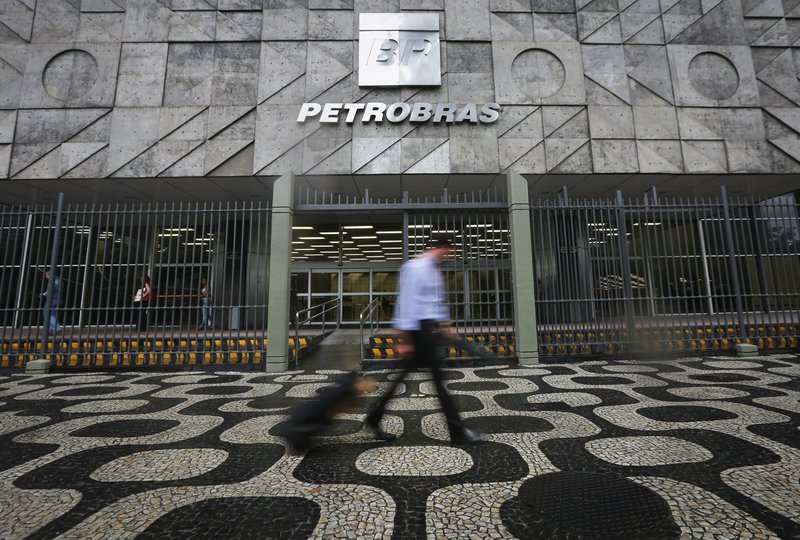
Then there is the £2.1bn fine Petrobras has agreed to settle a US investors’ class action, already bigger than the amount actually stolen.
But both the theft and the losses are dwarfed by (and reflected in) the collapse in Petrobras’s share price.
Before the scandal broke in September 2014, shares were at $19.33 but as of March 2018 they had dropped to $14.07. The government suffered a paper loss of £14.1bn for its 29% stake in the company.
September 2014 was also the moment that global oil prices began a long decline, but the damage was too great for Petrobras to hide. “I would say 90% of the fall in share price is due to Car Wash,” says Tiago Cavalcanti, a Brazilian economist at the University of Cambridge.
Petrobras’s 3.7 billion shares are supposed to furnish Brazil with a healthy income, and in the three years before Car Wash exploded, they provided Brazil with an average annual dividend of £360m.
No dividend was paid in 2015, 2016 or 2017, costing the country £1.1bn.
An unprecedented recession
Then comes the kicker. So vast was the upheaval – with billions slashed in investment – that some believe it helped bring about the worst recession in Brazil since records began.
In March 2014, when the first Car Wash arrests were made, the Brazilian unemployment rate was 7.1%. By last summer it was at 13%.
São Paulo consultancy GO Associados, headed by economist Gesner Oliveira, calculated that the fallout from Car Wash hit GDP by 2.5% in each year the investigation was going on, from 2015 to 2017.
The consultancy has now told Global Witness it has revised those figures up to an extraordinary 3.6% – which would mean almost the entire drop in output during 2015 and 2016 was accounted for by Car Wash.
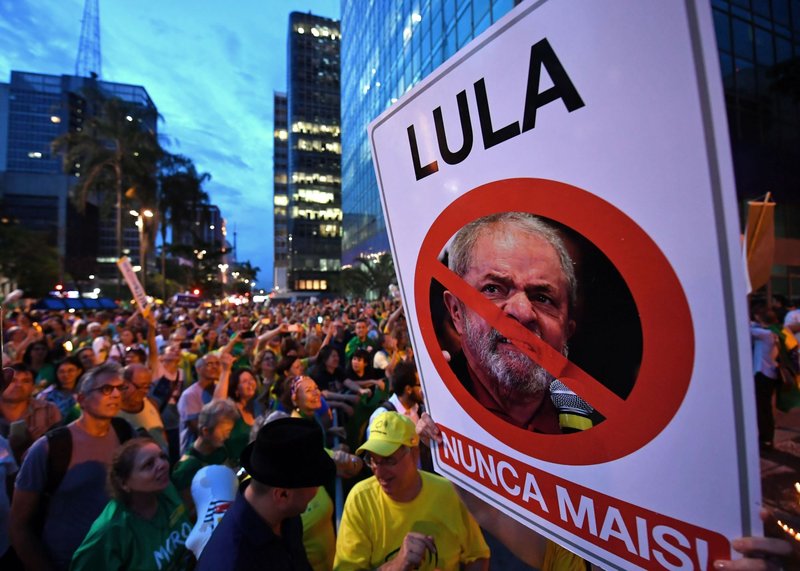
GO Associados said that would imply an annual $4.6bn (£3.3bn) in lost tax for each of the three years the fallout from Car Wash was at its most extreme – £9.9bn.
This figure would appear to be on the conservative side: it is based on the hit to the economy from Petrobras’s reduction in spending plans – but does not take into account the wider impact on Brazil’s giant construction companies, many of which lost contracts elsewhere in Latin America as a result of the scandal.
Such firms were also banned from any public contracts in Brazil.
The figure also fails to include the reduction in foreign investment in Brazil as a result of the political turmoil.
The grand total
So even setting aside Brazil’s paper loss – Petrobras shares may well continue to rise – Lava Jato could have cost the government at least £11bn in revenue in lost tax and lost dividends from its stake in the company.
That’s almost eight times the amount stolen from Petrobras in the first place.
“That number sounds very plausible and the calculation is logical,” says Cavalcanti, who has himself calculated that without Car Wash and other governmental policies Brazilian GDP would have grown by 1.2% in 2015 and 2016 (as opposed to an actual fall of 3.8% and 3.6%).
“Another reason for the recession was the falling price of commodities, but Peru and Chile did not have the fall Brazil had. Certainly Car Wash was a very big factor in the recession.”
The true cost
Who knows the real difference that £11bn could have made in a country where universal healthcare is still some way off and about 7 per cent remain illiterate. The real price of Car Wash is incalculable.
“I feel disgust and exasperation,” says Padilha.
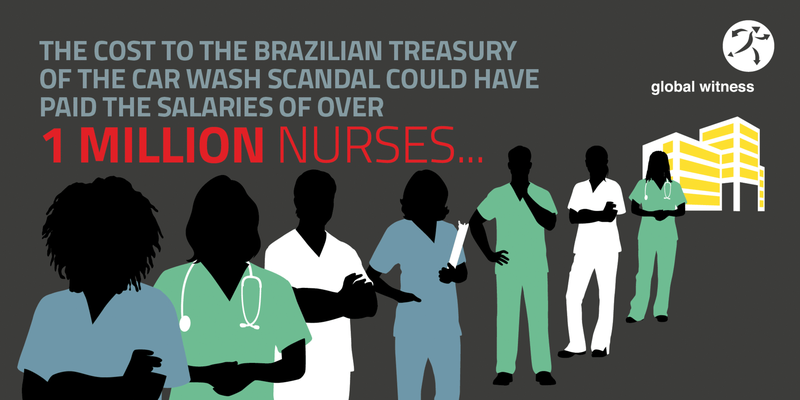
Tip of the iceberg
You might think that at such terrible cost, the Brazilian public would rather the fraud had never been exposed. But a recent poll suggests 94% of Brazilians think the investigations should continue despite the current turmoil.
For many, this is a golden opportunity to tackle the corruption that has afflicted the Brazilian body politic for decades before the mechanism started turning.
Because according to the filmmaker, Petrobras is the tip of the iceberg.
“There is no public contract in any village, town, city or state that is not affected, from the tiniest new road to the biggest government project,” he says.
“All are corrupted – and none of this is exposed yet. In my country you can turn any stone and there will be cockroaches underneath.”
This article was originally published by the New Statesman.
